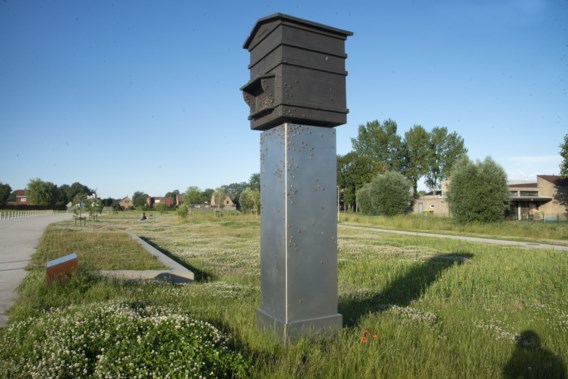After a panel of 15 international historians deemed a West Flemish monument to Waffen-SS collaborators “inappropriate,” the town of Zedelgem will be removing it.
Titled “The Latvian Beehive,” the monument calls attention only to prisoners from Latvia who were Nazi collaborators serving in the Waffen-SS during World War II, according to De Standaard.
The monument drew criticism and protests over the summer, which is what led to Zedelgem seeking the advice of historians.
The city council announced the result of the consultation on Friday.
The experts concluded that the erection of the statue paid “homage to the Nazi regime, to justify certain war crimes or to deliberately hurt people,” the press release reads.
Related News
- International panel of historians calls Flemish war memorial ‘inappropriate’
- Heritage Minister looks to make 'frietkoten' protected monuments
- Five questions to philosopher Philippe Van Parijs on Leopold II and embarrassment in Brussels’ public space
The monument was established in 2018 on a square that formerly held a prisoner of war camp that the British army set up after the Second World War.
The symbolism of the beehive evokes the language of right-wing nationalism in Latvia, which sees members of the SS Legion as patriotic heroes who fought against the Soviet occupation of Latvia.
Its establishment also opened the door for potential Flemish nationalists who wanted to create a monument in “recognition of the Flemish soldiers who also fought against communism on the Eastern Front.”
“The memory of the camp prisoners deserves recognition, but not tribute,” the historians determined. They said that if the statue is to be given a new purpose, as a work of art or otherwise, it’s necessary to interpret its history critically, especially to “do justice to the complexity of the historical context.”

